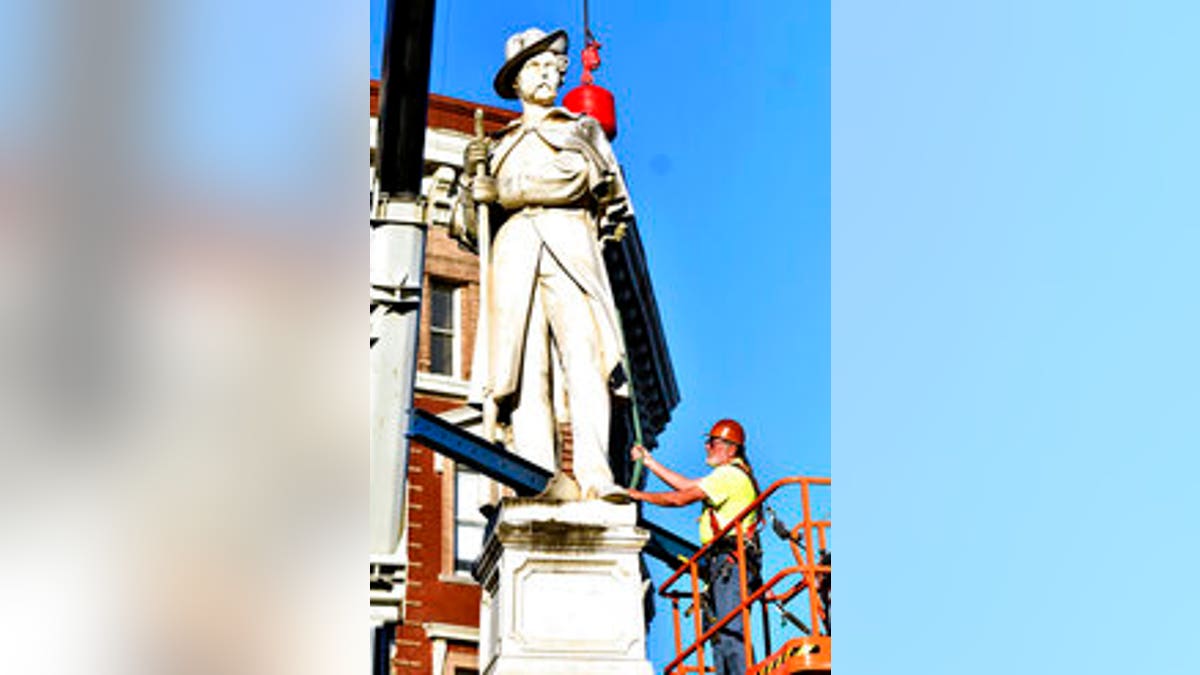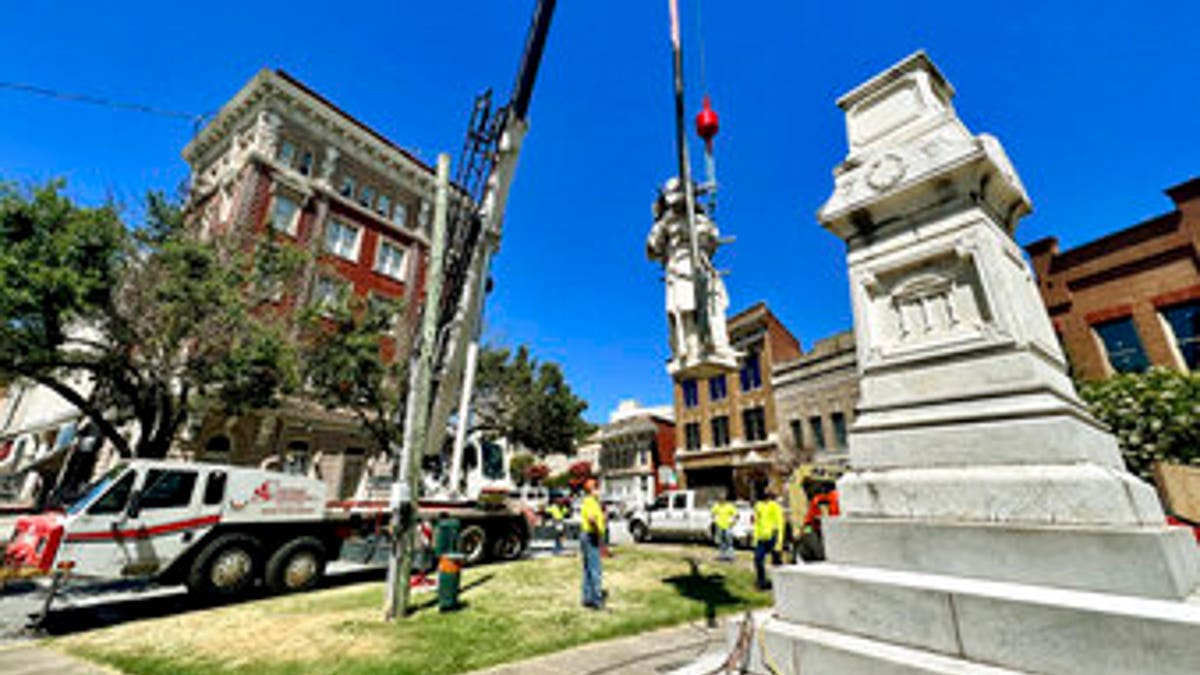Fox News Flash top headlines for June 23
Fox News Flash top headlines are here. Check out what's clicking on Foxnews.com.
Two Confederate statue are being moved in middle Georgia's largest city after relocation plans were stalled for years by lawsuits.
Crews began moving the monuments Wednesday, The Telegraph of Macon reports, using $160,000 in private money raised by a community foundation.
The monuments are going to a park outside Macon's Rose Hill Cemetery, where 884 Confederate soldiers are buried, from locations on two downtown streets.
STATUE OF CONFEDERATE ROBERT E. LEE TAKEN DOWN IN VIRGINIA
The Macon-Bibb County Commission approved moving the monuments in July 2020 after years of advocacy, but lawsuits stalled the efforts.

Georgia's Macon-Bibb County Commission is moving two Confederate monuments from Macon to a Confederate cemetery.
One statue on Cotton Avenue, erected in a different location in the 1870s, represents an anonymous Confederate soldier. Another monument on Poplar Avenue, built by the United Daughters of the Confederacy, was dedicated to "women of the South."
Macon's Urban Development Authority says it will redevelop the Cotton Avenue location to make more green space for the growing number of downtown residents.
The Cotton Avenue statue was a particular target for protests. It was defaced by vandals in the summer of 2020 during Black Lives Matter protests after the killings of Ahmaud Arbery, Breonna Taylor, and George Floyd.
The Macon-Bibb County Commission voted 5-4 to move the monuments, but a resident sued, citing a Georgia law that says Confederate monuments can only be relocated to places of "equal prominence." A judge eventually dismissed the lawsuit at the request of the city-county.
TIME CAPSULE FOUND AT CONFEDERATE GEN. ROBERT E. LEE STATUE SITE REVEALS CIVIL WAR-ERA ARTIFACTS
"We’re not asking to put it in a dungeon. We’re not asking that it be thrown in the Ocmulgee River. We’re not asking that it be desecrated," former Macon Mayor C. Jack Ellis said during protests in 2020. "We ask that it be put in its proper place, and that’s Rose Hill Cemetery, where those soldiers are buried and where this belongs because it, too, is dead. This era is dead, dead and gone. Put it in the cemetery where it belongs."

A Confederate monument is moved from the center of Macon, Georgia. The monument will be relocated to Whittle Park in front of Rose Hill Cemetery.
The Sons of Confederate Veterans and United Daughters of the Confederacy reached compromises with the city-county over the location near the cemetery.










































